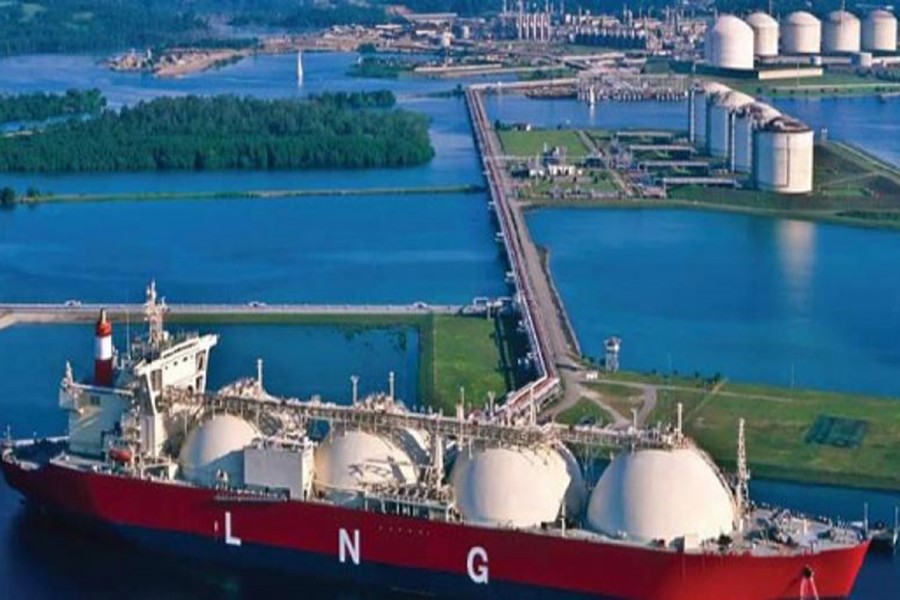A section of businessmen have now queued up to bag LNG-based large power plant contracts bypassing bidding process, as allowed under a special law enacted in 2010 for power and energy sector.
Many entrepreneurs have already concluded negotiations and some are expected to wrap up talks with the 'special committee' to ink final deals, despite opposition from energy experts and rights groups, a senior official of the ministry of power, energy and mineral resources (MPEMR) told the FE.
Business conglomerates including Unique, Summit, United, and BSRM are among those that are at the final stage of nailing deals with the government agencies to build at least four large LNG-based power plants having a total generation capacity of around 2,500 megawatt (MW).
The rush came after the government amended the special law extending its tenure for three more years.
Most of these power plants would be located in Chattogram, while some would be near the bank of the Meghna River, said the official.
"We have already issued letter of intents (LOIs) to Summit and Unique to build two large LNG-based power plants having the generation capacity of around 600 MW each under the special law," Bangladesh Power Development Board (BPDB) chairman Khaled Mahmood told the FE.
Several more business conglomerates would get letters soon, he said.
Under the special law, the government has already approved and implemented a number of power and energy projects, including building several dozen oil-fired power plants, drilling more than a dozen of onshore gas wells by international oil companies.
The US's Excelerate secured the contract and built the country's first floating LNG import terminal having the capacity to handle around 3.75 million tonnes of LNG on Moheshkhali Island under the law.
Summit Group is currently building the country's second floating LNG import terminal with the similar capacity under the law.
The private sector also bagged several coal-fired power plant projects under the special law.
Officials said the government once again amended the 'controversial' law in parliament, extending the provision for three more years in executing energy and power projects without tender.
A relevant gazette in this regard was published over one and a half months ago.
The Speedy Supply of Power and Energy (Special Provision) (Amendment) Act, 2010 has been extended until October 11, 2021, the power and energy ministry official said.
Energy experts and rights groups, however, assailed the further extension of the special law, saying that it would undermine good governance, discourage competition and escalate project costs 'illogically'.
The law was first enacted in October 2010 with the objective of implementing a number of oil-fired rental and quick rental power plants within a shortest possible time.
It was extended for the first time by two years until October 11, 2014.
The special law was further extended by four-years until October 11, 2018.
Under the law, all types of power and energy projects, including the import of natural gas, coal, LNG and petroleum products, as well as the extraction of mineral resources, can be implemented quickly, without the usual tendering process.
Electricity generation, transmission and distribution projects are also covered under the law.
The legislation states that any activity, which comes under its purview, or any official or employee implementing such activities cannot be subjected to legal action.
The law allows parties interested in power and energy projects to enter into contracts through negotiations with a 'special committee.'
The committee comprises top government officials of the energy ministry, and officials from the state-owned power and energy agencies.
Critics said such a provision is non-transparent and can induce widespread corruption in the sector.
Energy adviser of the Consumers Association of Bangladesh (CAB) M Shamsul Alam said it would encourage corruption and enhance non-transparency in the energy and power sector.
He expressed the fear that quality of the project work to be implemented under the special law would not be up to the mark.
"I think the country's existing power and energy situation does not permit further extension of the special law," said professor Ijaz Hossain of Bangladesh University of Engineering and Technology (BUET).
"This extension is not acceptable now as there is no emergency issue. The government is almost 10 years in power," Mr Hossain said.
"It implies that the government does not have proper planning. And it has stuck to ad-hoc solution to the country's power and energy situation," he noted.
It has been done to 'reward' a section of businesspeople having links with the government, he alleged.
Many projects, though awarded under the special law, are facing enormous delays, he said.
He suspected that the law would be scrapped if parties other than the Awami League come to power.
Professor M. Tamim, an energy advisor of the caretaker government during 2007-2008, said that the law was necessary in 2010 when the country was reeling under severe energy shortage. "Currently the country has stable power and energy supplies compared to the past," he said.


